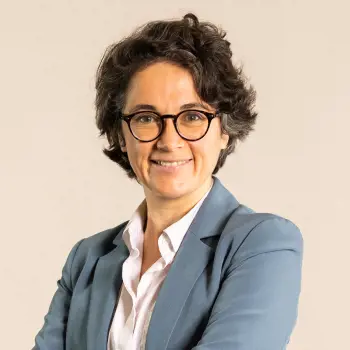 ;
;
COP28 ended with a final statement that can be considered historic, mentioning for the first time the need to transition away from fossil fuels. However, this landmark deal should be considered as the start of a more ambitious journey, that will remain dependent on governments’ ability to step up their commitments and action.
Probably the best deal that could be achieved, given the circumstances
While the first draft version of the agreement appeared to many as a disappointment, we welcome the final text that was probably the best compromise we could hope for, given the circumstances. The final statement finally addresses the fossil elephant in the climate room by mentioning the need to “transition away from fossil fuels […] in a just, orderly and equitable manner”. This may seem self-evident to informed climate observers, but it is a result which seemed unhoped-for, just 24 hours prior to the release of the final statement. And it is the first time since the Paris Agreement that the need to reduce our dependence on all fossil fuels is mentioned as a global objective. In the end, this text is undoubtably the best compromise that could have been reached, and a hopeful success for multilateral diplomacy. We have to see the glass as half full !
From words to (decisive) action, finally?
Yet, the words used in the agreement remain vague, with few actionable objectives – reflecting what can be described as a diplomatic compromise. Devil will be in the details of their concrete implications in terms of commitments and actions. 2024, an election year for more than half of the world's population, will be key in defining whether climate action remains high on the political agenda.
The consensus of all Parties on tripling renewable energy capacity by 2030 is a strong signal, reassuring for the companies and investors of the sector after a turbulent 2023. The message is clear: the renewable energy revolution is underway and will continue to accelerate, despite the headwinds of the macroeconomic context and industrial challenges. Some countries were more reluctant on energy efficiency objectives, which is a disappointment, given the role that energy efficiency must play in reaching climate goals. Keep in mind that energy efficiency is probably the best and cheapest way of resolving the energy trilemma of ensuring energy access in an affordable manner, while reaching climate targets and ensuring energy security.
Last but not least, the first financial commitments made to the "loss and damage" fund can be considered a major step forward, even if the amounts pledged (close to $800 million) remain very far from the estimated $200 billion required for climate adaptation every year. The topic of climate adaptation is probably among the most urgent, especially in the most vulnerable countries, in order to ensure a just and orderly transition. Here again a lot, if not everything, remains to be done.
Methane emissions: catch me if you can!
One topic on which observers praised meaningful progress is the reduction of methane emissions. Unfortunately, despite aspirational commitments that on paper could seem ambitious, we are lacking clear objectives and decisive action across all sources of methane emissions. Yes, most energy companies have committed to end routine flaring by 2030, but this ambition is focused on upstream operations only and fails to address fugitive emissions. In addition, disclosures on methane emissions remain very insufficient to monitor progress. The lack of real-world progress on this issue is all the more disappointing as all the solutions to reduce methane emissions already exist and most of them are economically viable!
All eyes on Baku… and a pivotal year for climate action!
COP28 will be remembered as the one that (finally) addressed the fossil elephant in the climate room. But it should be seen as the start of a new more ambitious climate blueprint, not the end of the road - and already an existential test in 2024, with elections in the US and in Europe that could fundamentally change the tone of the discussion in Baku next year.
This document is provided for information and educational purposes only and may contain Candriam’s opinion and proprietary information, it does not constitute an offer to buy or sell financial instruments, nor does it represent an investment recommendation or confirm any kind of transaction, except where expressly agreed. Although Candriam selects carefully the data and sources within this document, errors or omissions cannot be excluded a priori. Candriam cannot be held liable for any direct or indirect losses as a result of the use of this document. The intellectual property rights of Candriam must be respected at all times, contents of this document may not be reproduced without prior written approval.
 ;
;
”The renewable energy revolution is underway
